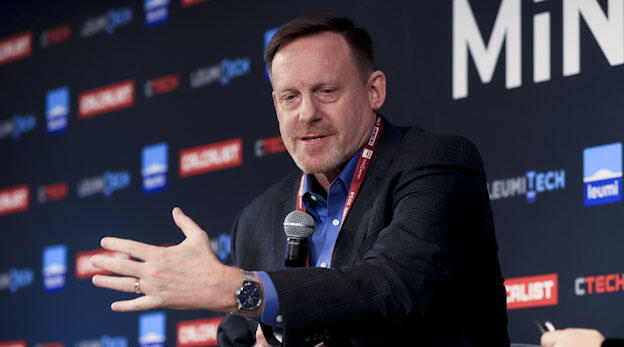
Mind the Tech NY 2024
Former NSA Director Michael Rogers: "The acquisition of Talon shows that the Israeli tech model is very vibrant and is recognized for its excellence"
"Even after October 7, Israel's reputation in cybersecurity remains incredibly strong," said Michael Rogers, former head of the National Security Agency and current Team8 Operating Partner
Michael Rogers
(Elad Gershgoren, Tomerico)
"Even after October 7, Israel's reputation in cybersecurity remains incredibly strong," said Michael Rogers, former Director of the NSA and an Operating Partner at Team8, in a conversation with Calcalist reporter Sophie Shulman at Calcalist and Bank Leumi’s Mind The Tech conference in New York.
He referred to the change in the role of cyber in combat on October 7: "As someone who was the senior cyber person in the Pentagon, I can say that cyber has a role in the conflict, but that it does not replace the physical component of combat. In the end, there is no alternative to boots on the ground. You cannot fight Hamas remotely.”
Rogers commented on the Hamas attack: "What surprised me was the initial readiness of Hamas to commit terrible acts. They wanted to carry out a series of acts that would provoke a tremendous, emotional response. It’s truly horrifying."
He also referred to the possible moves of Iran and Hezbollah. "We have seen Iranian cyber activity against Israeli infrastructure, electricity, water, and government. But my feeling is that Iran and Hezbollah have decided that a significant confrontation with Israel at this time is not in their interest. That is why their reaction is relatively measured. How long will this last? As long as they think it is better for them to continue in an indirect confrontation."
"Talon is a good example of an Israeli cybersecurity company that had an idea and was able to capitalize on it, implement it on a large scale and create enough value for an American company to want to purchase it," Rogers said when referring to the purchase of Talon by the American company Palo Alto Networks for $625 million. "This shows that the Israeli tech model is very vibrant and is recognized for its excellence around the world. It is not by chance that there are many American companies with a significant presence in Israel."
Can’t such purchases harm the cyber industry in Israel, for example by removing small players from the market?
"Those who don't want to be acquired don't have to do it. But that's how capitalism works. If you're a company and you have money and there's something you want, that's one of the strategies. Creating a competing product is another strategy. In the last year, the scope of mergers and acquisitions in the technology world has decreased, among other things because the market has come to understand that the value is too high and is based on speculation, on potential and not actual income."
Watch the full interview in the video above.
















